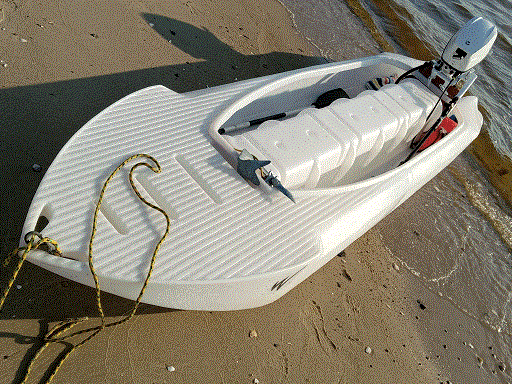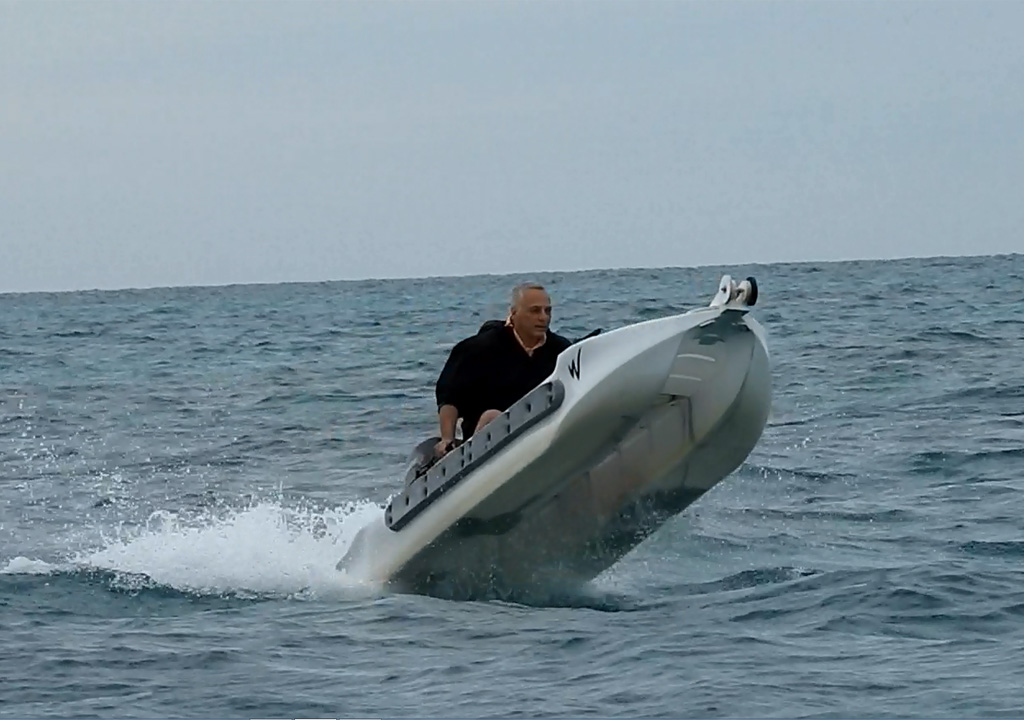Updated June 5, 2024
What Boating Regulations Apply To Classifying Canoes, Kayaks, and Small Boats, and to Motorizing Them?
The United States Coast Guard (USCG) is a branch of the United States Armed Forces, and it is authorized to enforce U.S. federal laws, including those pertaining to safe motorizing of small boats. See: The Code of Federal Regulations (CFR) Section 183-53 of Title 33 Volume 2 Subpart D — Safe Powering
What Is The HP Rating For Canoes and Kayaks?
There is no specific definition for Canoes and Kayaks within the regulation, but the USCG uses the American Boat and Yacht Council (ABYC) definitions. These definitions are found in the ABYC H-29 Standard “Canoes and Kayaks”, and serve to evaluate whether or not a vessel should be considered a Canoe, a Kayak, or a small Boat (monohull boat), and whether a canoe or kayak powered by a motor does not exceed a safe powering maximum rating.
ABYC H-29 Standard Provides The Following Definitions:
Kayak: A watercraft designed to be manually propelled, typically without provision for auxiliary power, with the occupant intended to be seated with legs approximately 90 degrees from the torso.
Canoe: A watercraft, designed to be manually propelled, with or without provision for auxiliary power, with neither end having a transverse dimension greater than 45% of its maximum beam and conforms to the following specifications:
| CANOE LENGTH | MAXIMUM CANOE BEAM [WIDTH] |
| Up to 14 ft (4.25 m) | 1/3 of the canoe length |
| 14 ft -16 ft (max 4.9 m) | 1/4 of the canoe length |
| Over 16 ft | 1/5 of the canoe length |
This means that a small vessel whose transom measures over 45% of its total width at its widest part may not be considered a Canoe (i.e. square stern canoe), even if it can be effectively paddled, and it will be considered a Boat, namely a monohull boat, e.g. dinghy, skiff, microskiff, Jon boat, and thereby fall under Section 183 Subpart D – Safe Powering .
Some canoe and kayak manufacturers offer mounts for outboard motors, or mount motors in the canoes and kayaks that they offer for sale. In these cases, the manufacturer must meet the auxiliary horsepower standards to be considered compliant with the ABYC H-29 standard.
These standards are:
| CANOE / KAYAK LENGTH | MAXIMUM HORSEPOWER RATING | MAXIMUM KILOWATT RATING |
| Under 15 ft (4.6 m) | 3 HP | 2.25 KW |
| 15 ft – 18 ft (5.5 m) | 5 HP | 3.75 KW |
| Over 18 ft (5.5 m) | 7 HP | 5.25 KW |
Note: This table can be useful to evaluate claims that manufacturers of electric motors make about the power in HP terms of the motors they offer.
For the purpose of rating the W720 Kayak-Skiff for maximum power (HP), Wavewalk defines it as a Kayak, and rates it for a maximum power of a 3 HP for an outboard motor mounted on it.
How Are Small Boats Rated for Max Motor Power (HP)?
There are two basic forms for a motorboat: Monohull and Multihull.
The Code of Federal Regulations, Title 33, Chapter I, Subchapter S Boating Safety, Part 183 Boats and Associated Equipment, defines a monohull boat as follows:
“Monohull boat means a boat on which the line of intersection of the water surface and the boat at any operating draft forms a single closed curve. For example, a catamaran, trimaran, or a pontoon boat is not a monohull boat.”
Part 183 Boats and Associated Equipment includes the federal safety requirements from boats under 20 ft long. Canoes, Kayaks and Multihull Boats are exempt from most of these requirements that Monohull Boats are subject to, including max motor power rating, per CFR Section 183-53 of Title 33 Volume 2 Subpart D — Safe Powering
Subpart D—Safe Powering § 183.51 Applicability.
This subpart applies to monohull boats less than 20 feet in length, except sailboats, canoes, kayaks, and inflatable boats, that are designed or intended to use one or more outboard motors for propulsion.
The USCG Recreational Boat Testing and Compliance Inspection Program has clarified to us that in order for the Wavewalk S4 to meet the requirements of the Multihull Boat standard, its twin catamaran hulls must each have a distinct water waterline of its own, and these waterlines should never intersect and merge into a single waterline, even when the S4 is at its maximum recommended load of 600 lbs.
Indeed, according to these criteria, the S4 is a true catamaran, namely a Multihull Boat in the full sense.
Note that a Tunnel Hull boat is not a true catamaran (multihull), but a monohull, because it is designed to have the water reach the top part of the tunnel between the two longitudinal sides of its hull, and therefore it has only one waterline, effectively.
Why Rate The S4 Microskiff For Maximum 6 HP?
In order to mount a motor bigger than 6 HP on the S4, the owner must reinforce the boat’s transom motor mount, which is not rated for more than a 6 HP motor.
Due to shipping problems, Wavewalk is prevented from installing the mounting plate on the boat at the factory, and it is the boat owner who installs it, after which they can reinforce the motor mount, in case they want to outfit their boat with a more powerful and heavier motor for which the S4 is not rated. However, the company does not take responsibility for such projects, or for any other DIY project that a client may undertake, so it is prevented from rating the S4 for more than 6 HP.
Overpowering a Boat
Note that outfitting a boat or a kayak with a motor that’s more powerful than the HP for which it is rated is called Overpowering, and some states consider it as illegal.
Also, Overpowering is generally not well viewed by insurance companies.
Registering a Boat or a Motorized Canoe / Kayak
All states require that any motorized vessel, including canoes, kayaks and multihull boats be registered with the local authorities. In most cases the state’s Department of Motor Vehicles (DMV) provides the registration service, but in some states other government organizations are in charge of these matters.
In most states, registering a motorized canoe or kayak does not require issuing a title but registering a boat does, and in some states even a motor boat doesn’t require the issuance of a title.
In most cases, registering a W720 kayak with the authorities does not require issuing a title, but registering an S4 Microskiff multihull boat does.
The registration of a motorized canoe / kayak or a boat requires presenting to the authorities a Manufacturer’s Certificate Of Origin (MCO) for the vessel, as well as a Bill Of Sale (BOS). Wavewalk and its dealers provides signed copies of both documents at no charge.
New article on this subjects: S4 Microskiff Powered By A 9.8 HP Tohatsu Outboard Motor
| Best Boat For Under $10,000 in 2024 |
Do you have any questions for us about this article?



Years ago, at a time ABYC was working on these standards, I contacted them and offered my help to create standards for multihull canoe and kayaks, but ABYC showed no interest.
I guess these things are part of being at the cutting edge 😀
Yoav